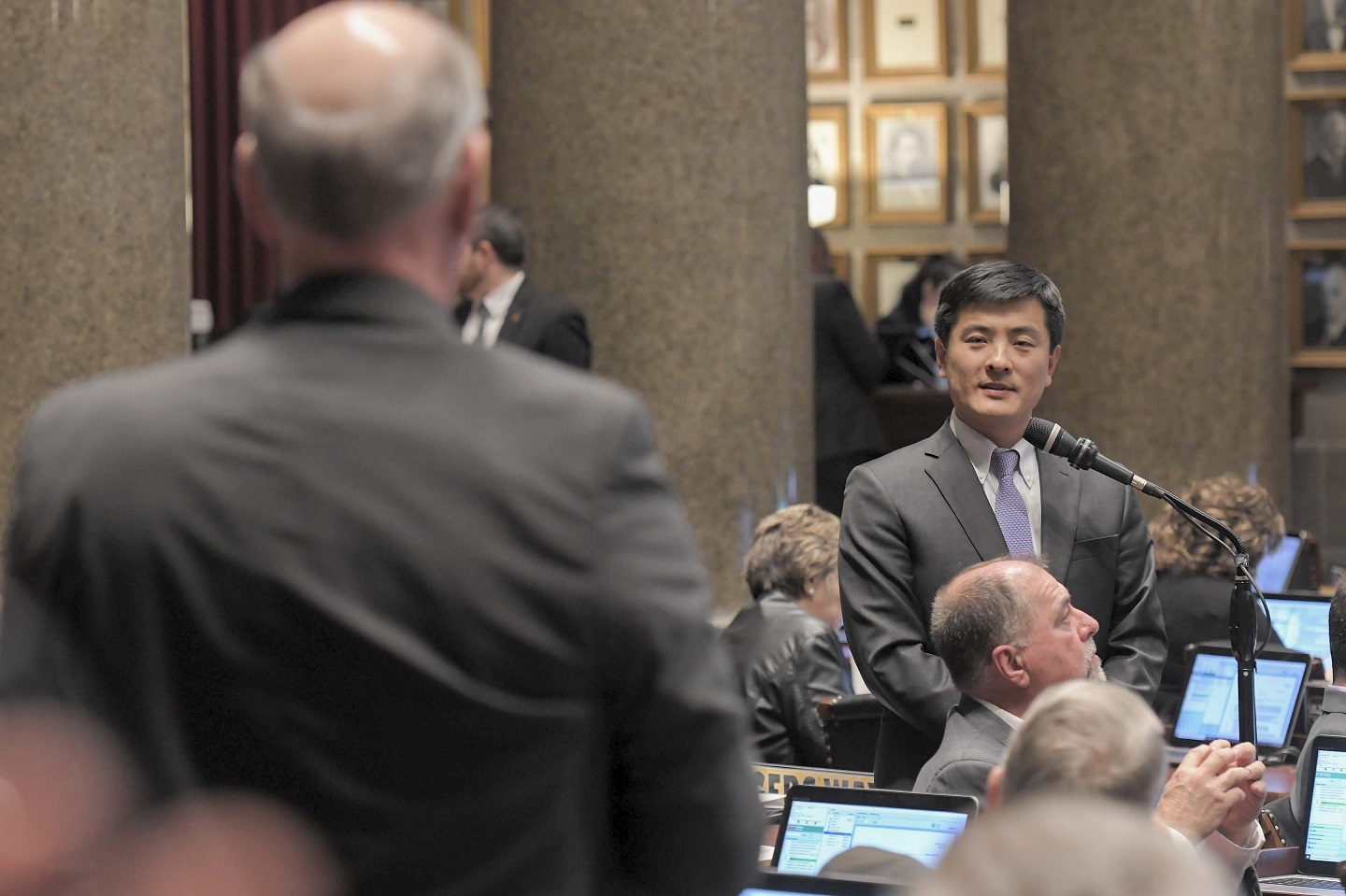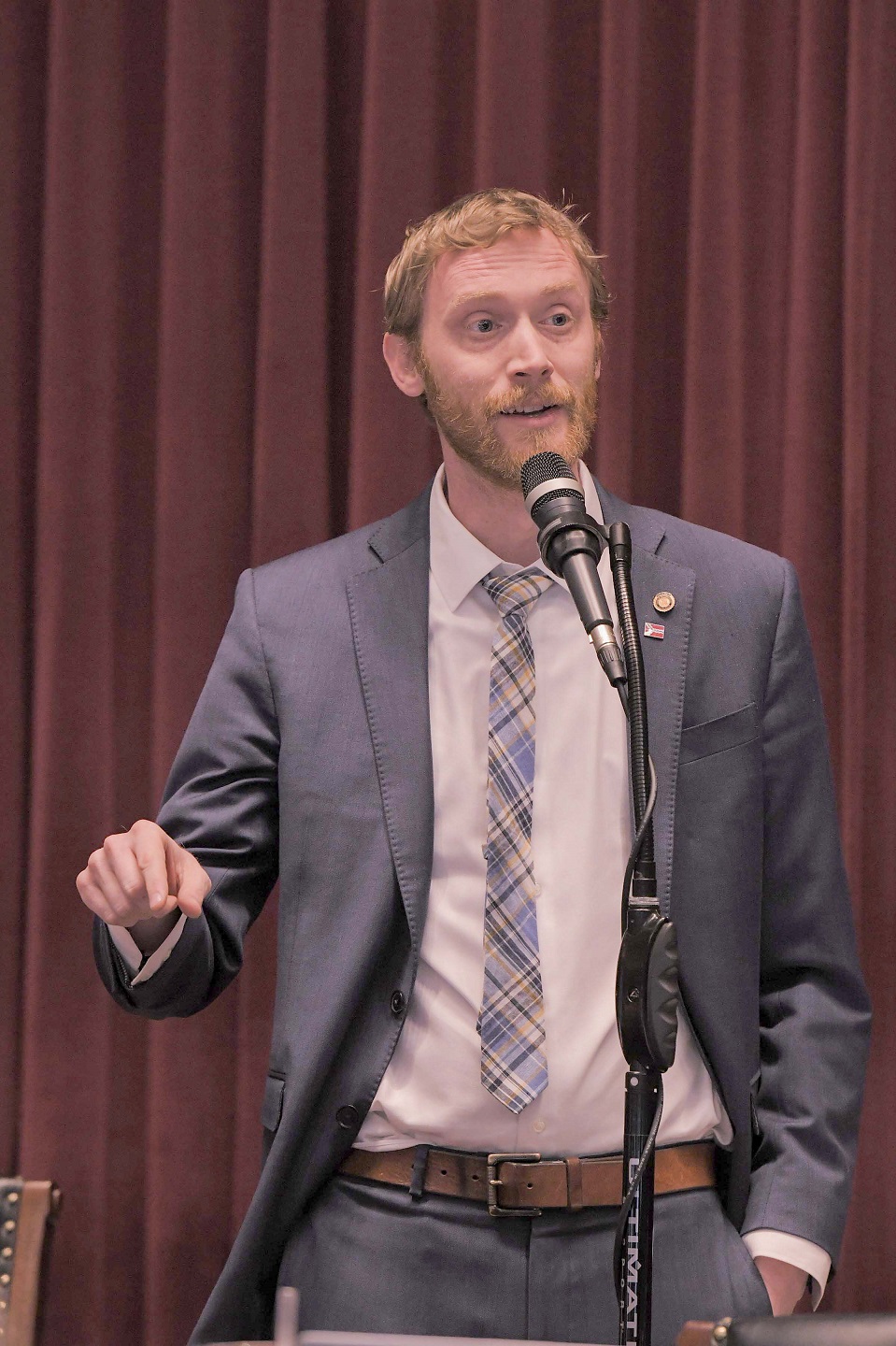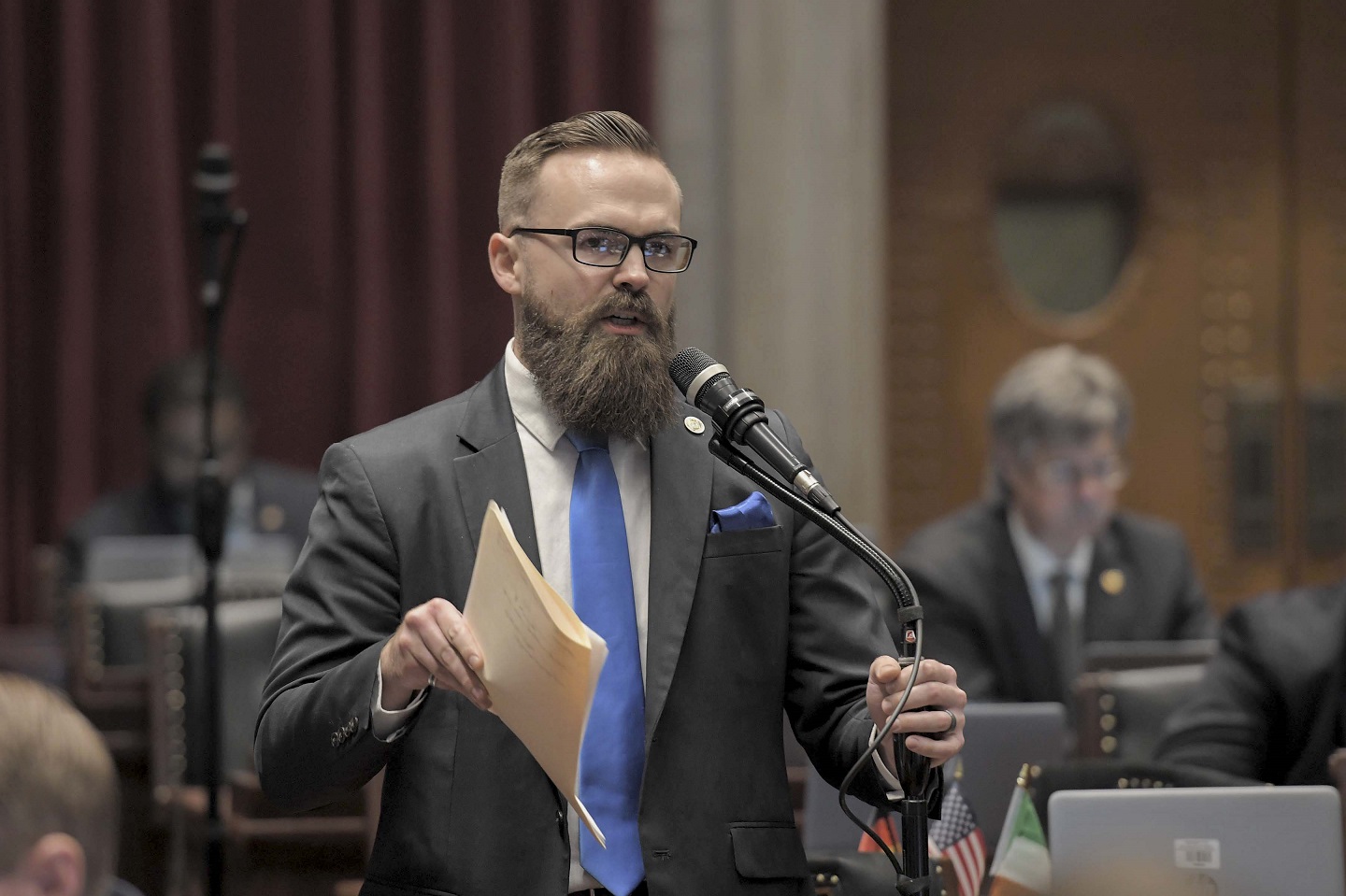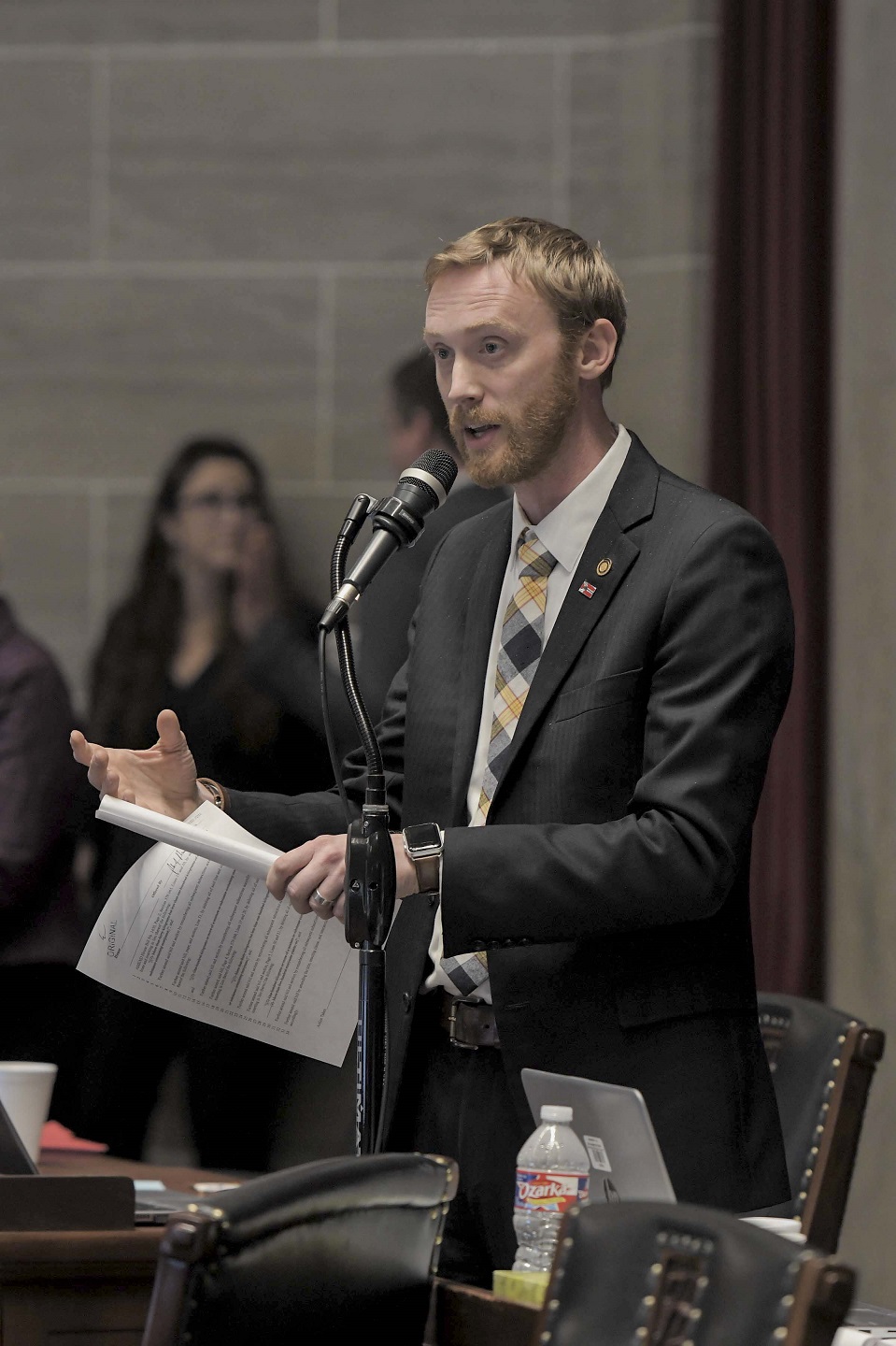The Missouri House has given initial approval to a bill addressing issues with implementing a medical marijuana industry approved by voters in 2018. This comes as its Special Oversight Committee continues to explore problems in the issuing of cultivation licenses.

House Bill 1896 would give the Department of Health and Senior Services authority to review criminal background checks to ensure no workers in the medical marijuana industry have committed a disqualifying felony criminal offense. Article 14 of the Missouri Constitution, passed in 2018 by Missouri voters, includes the authority for DHSS to conduct criminal background checks, but the FBI does not share that information with non-law enforcement entities.
HB 1896 would give DHSS statutory authority to satisfy the FBI’s concerns. It would also make it a Class-E felony for a state agency to share data about medical marijuana card applicants with the federal government.
The House on Thursday added a provision to the bill that would require a medical marijuana card applicant to meet in-person with a Missouri doctor in order to be certified.
That piece was proposed by Representative Jonathan Patterson (R), a Lee’s Summit surgeon, who said it would strengthen the fledgling program.
Some lawmakers opposed Patterson’s amendment, saying it took a narrowly focused bill to fix a problem holding up the system, and added roadblocks to some potential medical marijuana patients.
“The Department testified to us the other day that the ‘North Star’ of Amendment 2 and the ‘North Star’ of their implementation of this was patient access, and all I see in here is a limitation on the physician I can go to,” said Representative Peter Merideth (D-St. Louis).

Merideth is also critical of Patterson’s amendment having first appeared on the House floor and not being the subject of a committee hearing.
“When people passed Amendment 2 do you think they had in mind an online doctor from some other country or another state?” Patterson asked.
“I think we should ask them,” Merideth responded. “That’s the point of a public hearing on something like this so that they can come in and say, ‘Here’s how it impacts me,’ so I can hear from a doctor, so I can hear from a patient.”
O’Fallon attorney, Representative Nick Schroer (R), said he believes Patterson’s amendment will lead to court challenges.
“This is going to prohibit the actual implementation of what the voters intended and what the voters requested,” said Schroer.
Other lawmakers said requiring certification from only Missouri doctors would be a burden to those who live near the borders and visit doctors from neighboring states.
Patterson argued his amendment would protect patients.
The House also added a provision to require DHSS employees involved in medical marijuana regulation to disclose any “actual or perceived” conflicts of interest to the Department.
Another favorable vote would send the legislation to the Senate.
The House Special Committee on Government Oversight has held several hearings into apparent inconsistencies in the approval of licenses to cultivate marijuana for medical use in the state. More such hearings are expected as early as next week.







